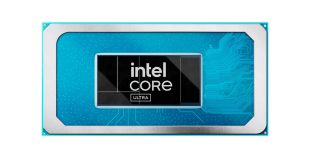Both Intel and AMD have been puffing out their collective chests when it comes to graphics in the integrated market. It's the one area where AMD has consistently beaten Intel in recent years. It's an area where Intel is working overtime to redress the balance while AMD is running like a gazelle from a lion to ensure it stays ahead. With Dr Lisa Su's recent statements at CES in Las Vegas, both sides have now declared their expectation. KitGuru pulls out the calculator to see what might happen when they get in the ring – if both side's claims are accurate.
First up: Graphics drivers make a huge difference.
While nVidia and AMD were locked in a furious battle for many years, their respective driver teams went to war, time after time. Those battle-honed skills have provided Intel with more of a challenge than it might have expected – but there is a confidence emanating from the Intel folks right now. They might not expect to win this time around,- but they do expect to be a lot closer than they have ever been before.
The Claims
Forget the weakest areas, what have both sides now said about their ‘best case' scenarios?
Intel believes there will be situations where the Haswell's fastest formation ‘GT3' graphics solution will have twice the power of Ivy Bridge and the HD4000. Let's say that is true.
AMD says that the A10-6800k Richland APUs will pack up to 40% more ‘kick' than the present line up of accelerated processors.
Using both side's ‘best claims' and the actual ‘Best Vs Best' testing from KitGuru labs, we've extrapolated results.
These graphs show what would happen if AMD manages 40% faster in-game performance than its A10-5800k and if Intel manages to sweep past the Ivy Bridge HD4000 graphics results by 100%. Remember, these are their claims, not ours, and we've taken them at face value.

.
You can read all about KitGuru's initial test conditions for the actual A10 5800k Vs HD4000 graphics testing here.
KitGuru says: We look forward to putting AMD and Intel's claims to the test once both sides have launched final product. Will Intel manage 100%? Can AMD prove Dr Lisa Su is correct when she says that the A10 6800k will be 22-40% faster than the present A10-5800k? With such a huge slice of the pie up for grabs, both sides will be going for it.
Comment below or in the KitGuru forums.
 KitGuru KitGuru.net – Tech News | Hardware News | Hardware Reviews | IOS | Mobile | Gaming | Graphics Cards
KitGuru KitGuru.net – Tech News | Hardware News | Hardware Reviews | IOS | Mobile | Gaming | Graphics Cards



I am pretty sure that you are comparing Intel versus a desktop AMD sku here… In mobile, on both Llano and Trinity, AMD had to decrease clocks significantly but Intel did not for Sandybridge or Ivybridge – which may make the results much closer.
Forget AMD’s Richland…
=> http://img849.imageshack.us/img849/4998/amd2013roadmapzps90ed6b.jpg
…Me waits for AMD Kaveri APU! Steamroller cores with GCN-based IGP!
According to what I was reading the other day HD4600 (Intel) is going to process at about 500Gflops which actually makes it 3 times as powerful compaired to HD4000 not 2x… which puts it very close to the scores posted here for Richland.
Although the Richland will have the ability to run in Hybrid mode so they will still have a bigger advantage then posted if they get that working.
I am replying to Jeff frizzell yes intel did have to lower the clock speeds on ivy bridge